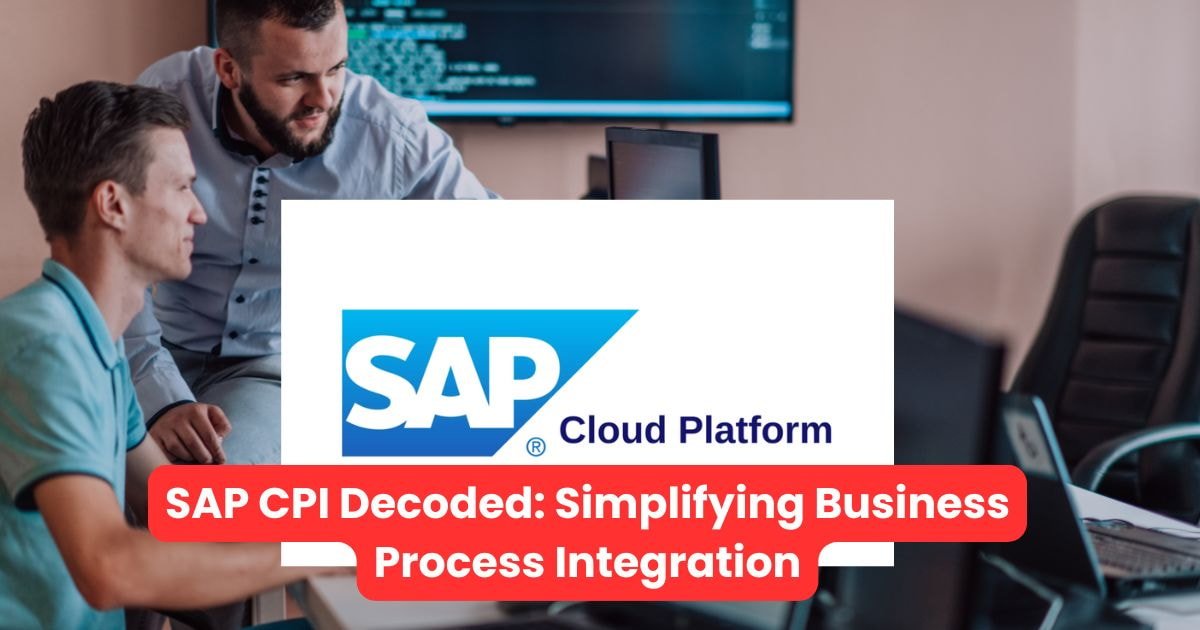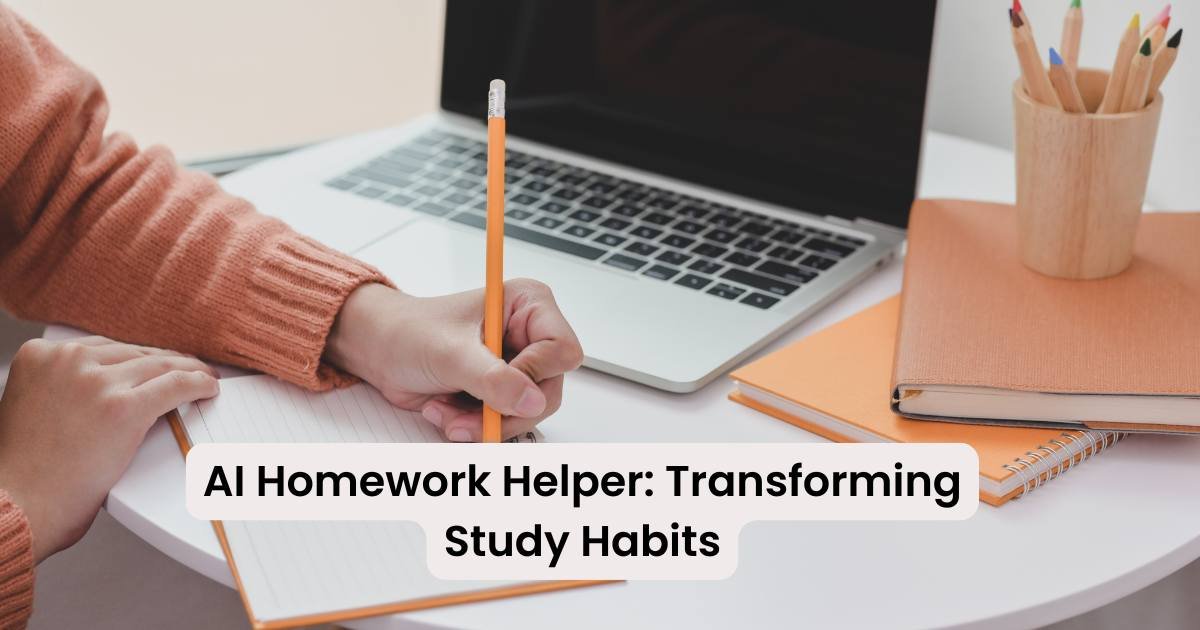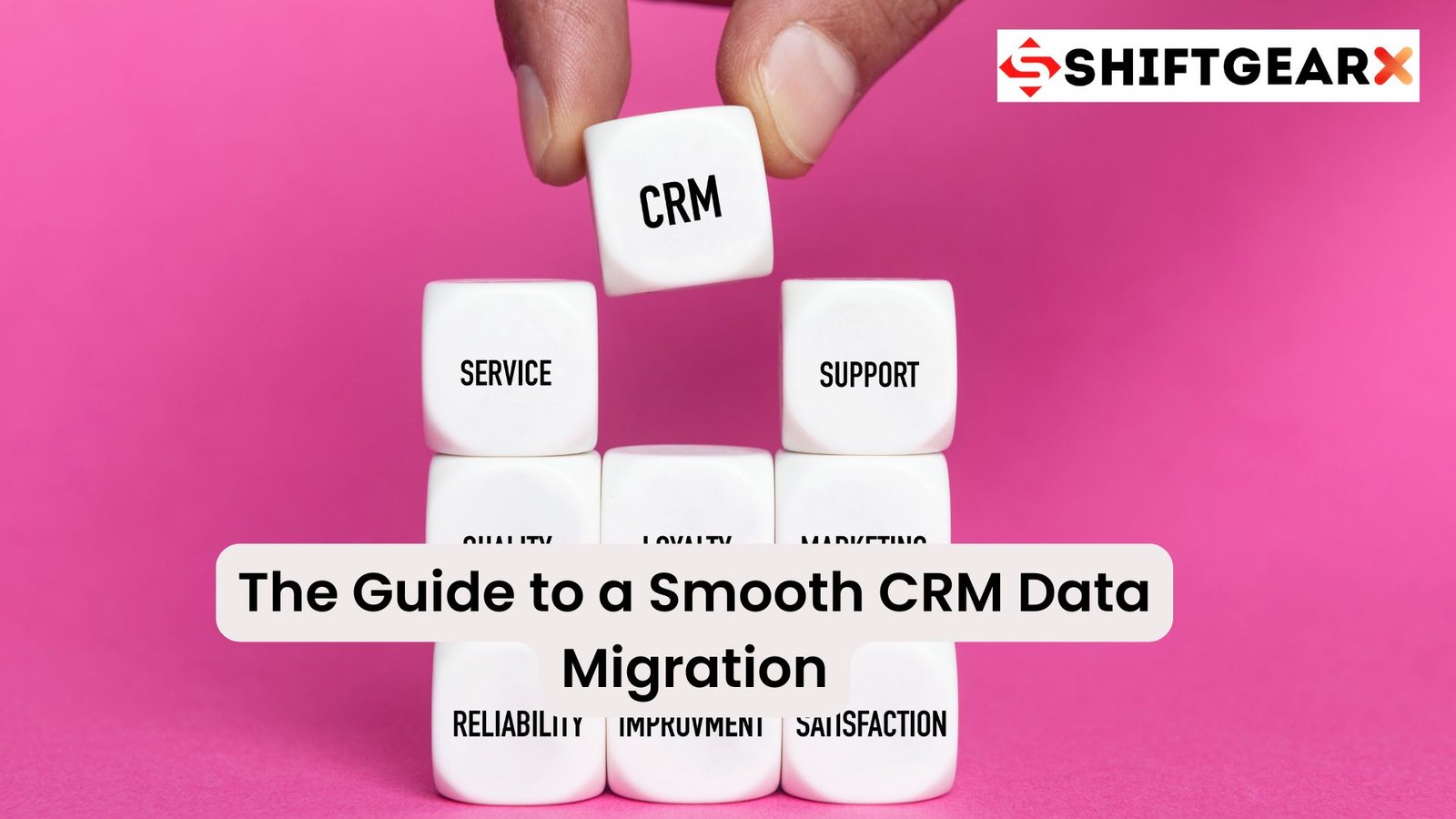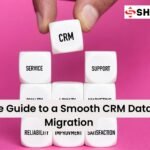AI-powered CRM Tools Will Change the World?
AI-powered CRM tools have become a no-brainer for small businesses. But let’s face it – not all CRMs are created equal, and finding the right fit can feel like searching for a needle in a digital haystack. That’s where we come in. We’ve done the legwork to bring you the cream of the crop when it comes to AI-enhanced CRM solutions for small businesses in 2024.
Did you know that businesses using AI CRM software have seen a 50% increase in leads and appointments? That’s right – these aren’t just fancy tools; they’re growth engines for your business. So, buckle up as we dive into the best AI-powered CRM tools that’ll give your small business the edge it needs.

Understanding AI-Powered CRMs: What’s the Big Deal?
Let’s cut to the chase: AI-powered CRM software is revolutionizing how small businesses manage customer relationships. But what exactly sets these smart CRM systems apart from their traditional counterparts?
At its core, an AI-powered CRM is like a traditional CRM on steroids. It goes beyond simple data storage and retrieval, leveraging machine learning and artificial intelligence to analyze, predict, and automate customer interactions. This isn’t just a fancy add-on; it’s a fundamental shift in how businesses approach customer relationship management.
The benefits for small businesses are substantial. First off, automation is a game-changer. AI-enhanced CRM tools can handle routine tasks like data entry, follow-up emails, and appointment scheduling.
This frees up your team to focus on what they do best – building relationships and closing deals.
These tools optimize customer relationship management processes through automation, real-time analysis of customer data, and personalized interactions, ultimately improving business performance and enhancing customer engagement.
Predictive analytics is another heavyweight feature. These systems can analyze customer data to forecast future behavior, identify potential leads, and even predict which deals are most likely to close. It’s like having a crystal ball for your sales pipeline.

Mike T., A Sales Manager at a tech startup had this to say “We tried three different AI CRMs before finding the perfect fit. Now, our sales forecasting is spot-on, and we’re closing deals faster than ever.”.
Personalization is where these systems really shine. AI-powered CRMs can analyze customer interactions across multiple channels, allowing you to tailor your approach to each individual. This level of personalized customer experience was once the domain of big corporations with deep pockets. Now, small business CRM solutions are leveling the playing field.
Features of AI Enhanced CRM Systems
So, what features should you look for in an AI-enhanced CRM? Here’s a quick rundown:
-
AI-driven sales forecasting: Predict future sales with uncanny accuracy.
-
Automated customer interactions: Use chatbots and AI email marketing to engage customers 24/7.
-
Predictive lead scoring: Focus on the leads most likely to convert.
-
AI customer segmentation: Group your customers based on behavior for targeted marketing.
-
AI-powered marketing automation: Create and execute marketing campaigns that adapt in real-time.
-
Voice recognition CRM: Capture and analyze phone conversations for deeper insights.
-
AI sentiment analysis: Understand the emotional tone of customer interactions.
-
CRM data visualization: Turn complex data into easy-to-understand visual reports.

The bottom line? AI-powered CRMs aren’t just a trend – they’re a fundamental shift in how small businesses can compete in today’s market. By harnessing the power of AI and machine learning, these tools are opening up new possibilities for growth, efficiency, and customer satisfaction.
It’s not about replacing the human touch; it’s about enhancing it, allowing you to build stronger, more meaningful relationships with your customers.
Top 10 AI-Powered CRM Software for Small Businesses
Let’s dive into the top AI-powered CRM tools that are making waves in the small business world. These aren’t just any CRM systems – they’re the cream of the crop when it comes to leveraging artificial intelligence for customer relationship management.
I can tell it’s not easy as you do not get all the features you want in one system. “Choosing the right CRM was overwhelming, but focusing on our specific needs made all the difference. Now we have a system that feels tailor-made for us.” – Lisa R., CEO of an e-commerce company
1. Salesforce Einstein – The All-in-One Solution

Salesforce Einstein isn’t just a CRM; it’s a powerhouse of AI-driven features. This intelligent CRM platform also includes tools for project management, streamlining operations and enhancing collaboration among teams. It offers predictive analytics, AI-powered marketing automation, and smart customer segmentation.
It’s like having a crystal ball for your business, predicting customer behavior and helping you make data-driven decisions. The AI sales assistant feature is particularly impressive, offering real-time coaching and insights to help close deals faster.
2. Pipedrive AI Sales Assistant – Best for Sales-Focused Teams

If your team lives and breathes sales, Pipedrive’s AI Sales Assistant is your new best friend. This tool excels in AI sales pipeline management and predictive lead scoring, streamlining sales processes and enhancing productivity. It’s not just about tracking deals; it’s about understanding them.
The AI-driven sales forecasting feature helps you predict which deals are likely to close, allowing you to focus your efforts where they matter most. Plus, the automated task management keeps your team on track without constant oversight.
3. Zendesk Suite – Ideal for Customer Service Excellence

Zendesk Suite takes AI customer service to a whole new level. Its AI-enhanced customer support features include chatbots for small businesses and voice recognition CRM capabilities. But it’s not just about automation – Zendesk’s AI also excels at customer sentiment analysis, helping you understand the emotional tone of interactions. This leads to more personalized customer experiences and improved customer retention strategies.
4. Freshsales – Budget-Friendly Option with Powerful AI Features

Don’t let the “budget-friendly” tag fool you – Freshsales packs a punch when it comes to AI capabilities. Freshsales offers competitive pricing plans, with costs calculated per month billed annually.
This CRM artificial intelligence tool offers predictive contact scoring, AI-powered lead generation, and intelligent workflow automation. It’s particularly good at AI customer data analysis, providing insights that help you understand your customers better. For small businesses looking to dip their toes into AI-powered CRMs without breaking the bank, Freshsales is a solid choice.
5. HubSpot CRM – Most User-Friendly AI-Powered CRM
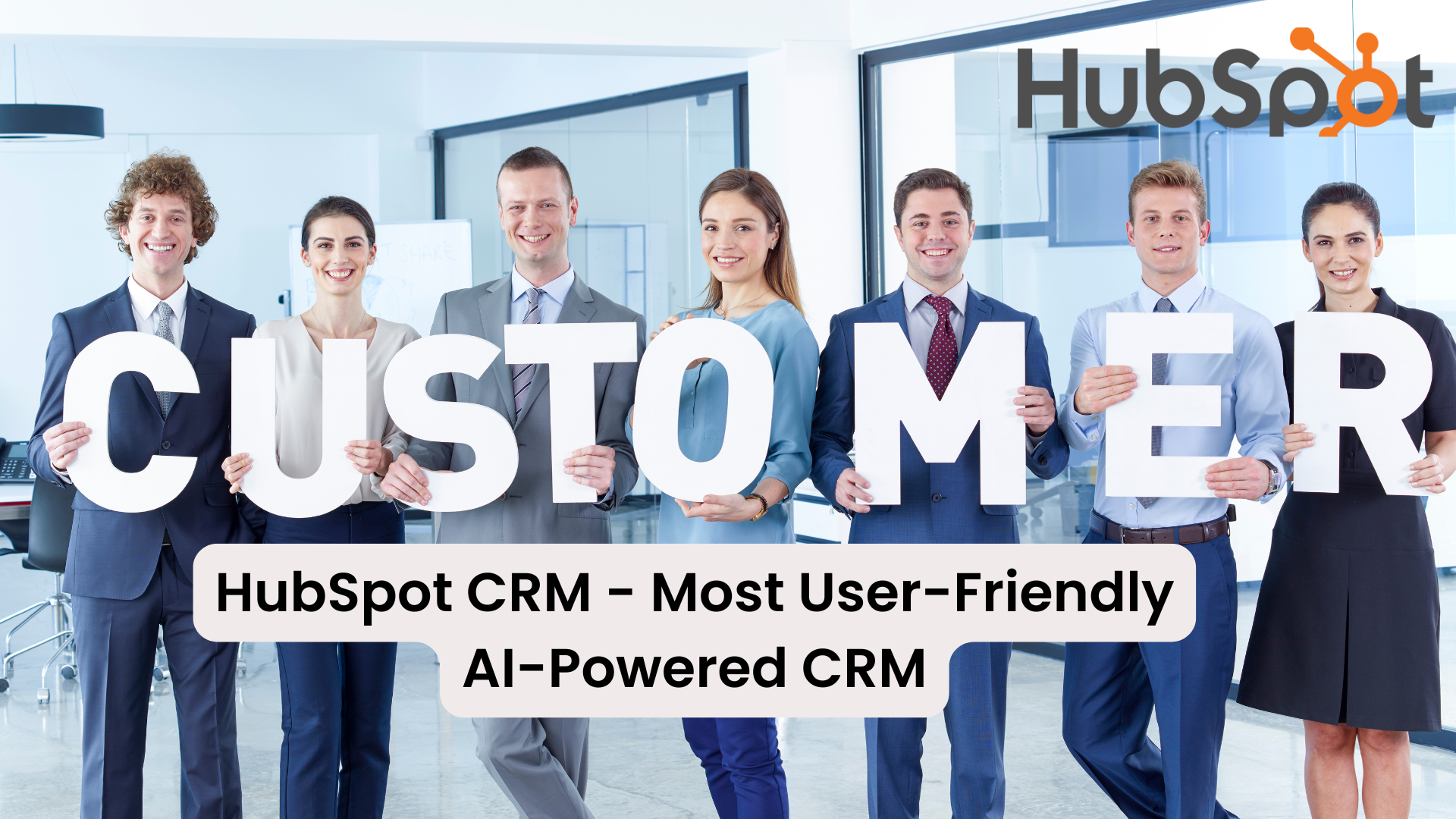
HubSpot CRM stands out for its intuitive interface and powerful AI features. It offers pricing plans that are calculated per user, making it scalable for growing teams. It excels in CRM process automation, offering tools for email sequencing, meeting scheduling, and lead rotation.
The AI-powered CRM dashboards provide clear visualizations of your sales pipeline and customer journey. What sets HubSpot apart is its commitment to small business CRM customization – you can tailor the system to fit your specific needs without needing a degree in computer science.
Each of these tools brings something unique to the table, leveraging AI to transform how small businesses manage customer relationships. Whether you’re focused on sales, customer service, or looking for an all-in-one solution, there’s an AI-powered CRM here that can help take your business to the next level.
Remember, the best tool for you depends on your specific needs, budget, and goals. Take the time to explore these options and find the one that fits your business like a glove.
6. Insightly – The Integration Powerhouse

Insightly isn’t just a CRM; it’s a hub for all your business tools. This platform shines in its ability to connect seamlessly with popular business applications like G Suite, Office 365, and Slack. It offers robust project management features alongside traditional CRM functionalities, making it a versatile choice for small businesses.
The lead routing feature is particularly impressive, automatically assigning leads to the right team members based on custom criteria. Insightly’s workflow automation capabilities can significantly streamline your business processes, freeing up time for more strategic tasks.
7. Copper – The Google Workspace Companion

If your small business lives in the Google ecosystem, Copper (formerly ProsperWorks) is your perfect CRM match. This tool is deeply integrated with Google Workspace, offering a seamless experience for businesses already using Google’s productivity suite.
Copper’s standout feature is its automatic data entry, which pulls information from your Gmail interactions to populate your CRM. The email tracking feature provides valuable insights into customer engagement, while the pipeline visualization helps you keep a clear view of your sales process. It’s like having a personal assistant that speaks fluent Google.
8. Nushell – The Sales Automation Specialist
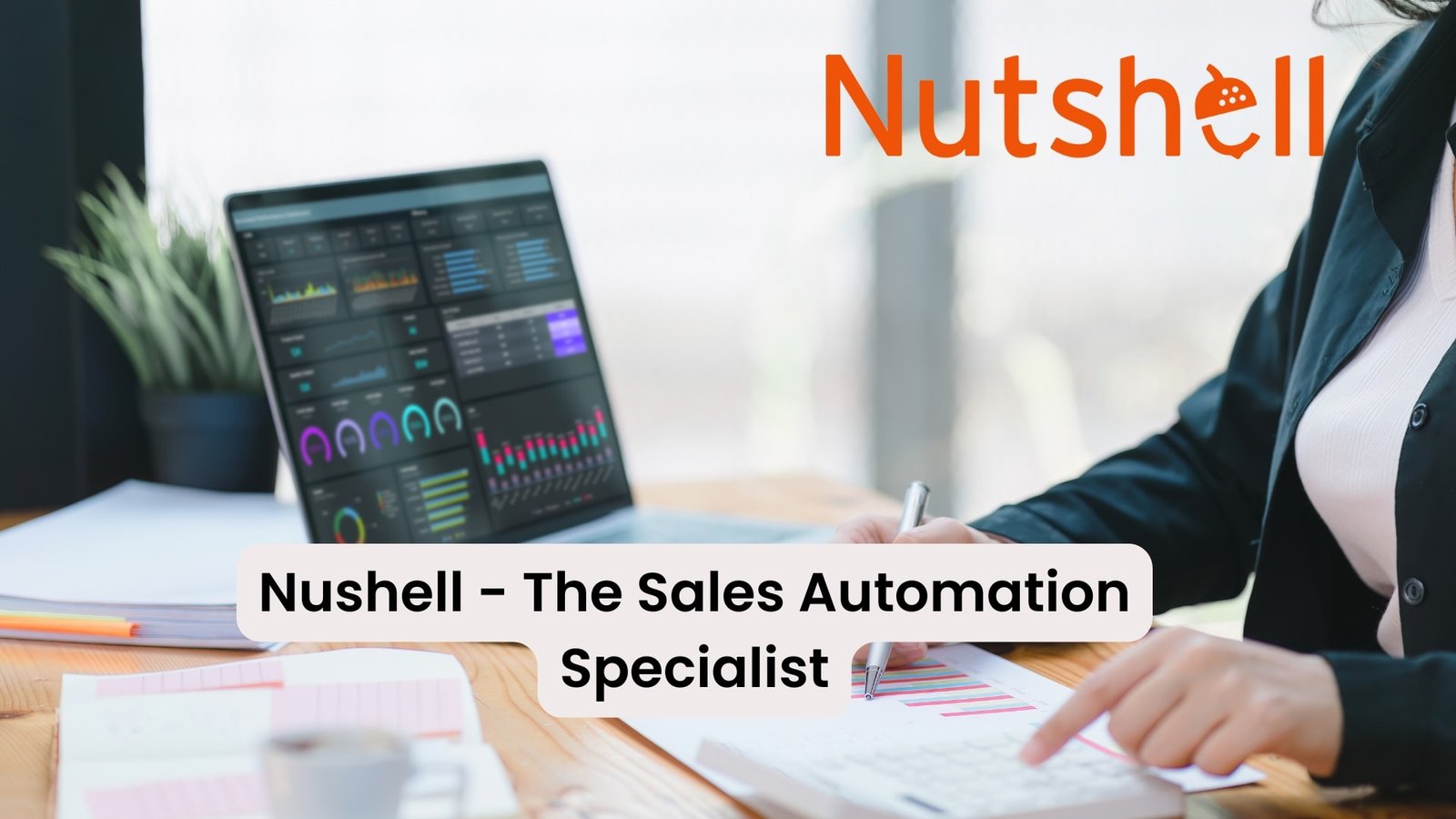
Nutshell is the go-to CRM for small businesses looking to supercharge their sales processes. Its personal email sequences feature allows for highly targeted, automated follow-ups, ensuring no lead falls through the cracks.
The sales process automation is particularly impressive, guiding your team through your defined sales stages and prompting the right actions at the right time. Nutshell’s detailed performance reporting goes beyond basic metrics, offering insights that can help you refine your sales strategy. Plus, their renowned customer support means you’re never left in the dark.
9. Capsule CRM – The Simplicity Champion
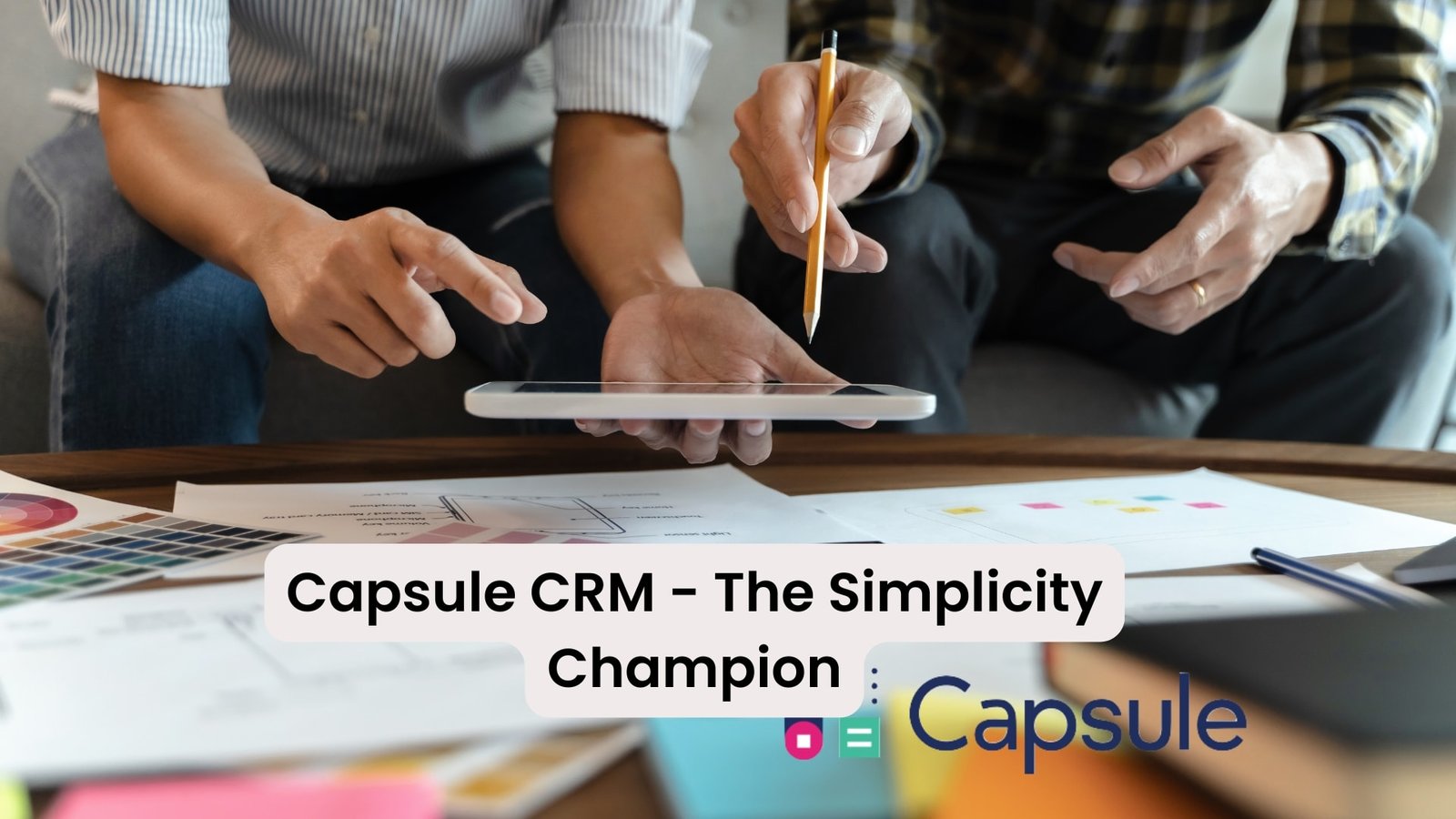
In a world of complex, feature-laden CRMs, Capsule CRM stands out for its refreshing simplicity. This no-frills system offers essential features like contact management, sales pipeline tracking, and task management without overwhelming users with unnecessary complexity.
Capsule CRM’s strength lies in its clean, uncluttered interface that allows small business owners to focus on what matters most – customer interactions. The task management feature is particularly useful, helping teams stay organized and on top of their to-do lists.
10. Less Annoying CRM – The User-Friendly Budget Option
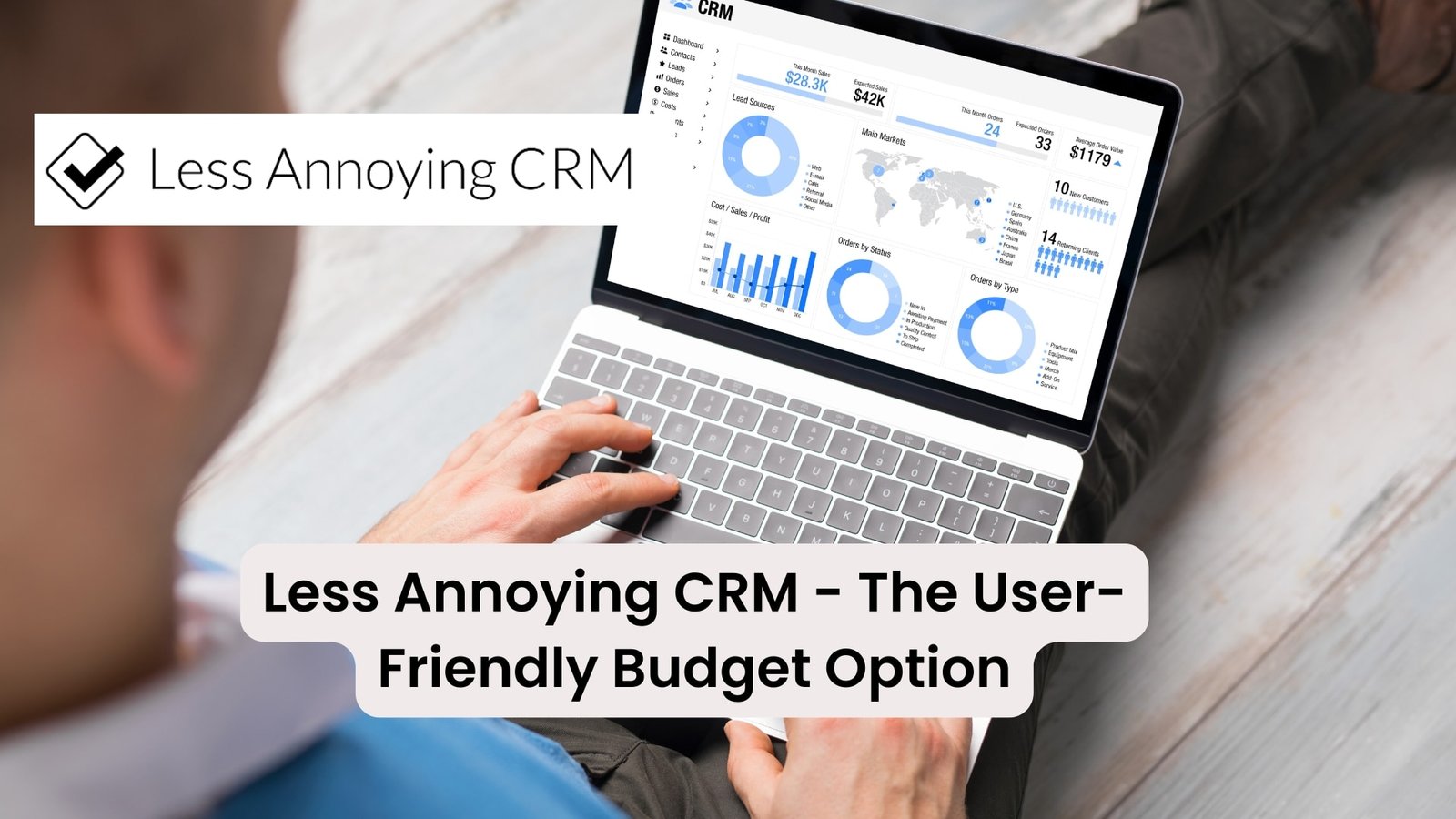
True to its name, Less Annoying CRM aims to take the frustration out of customer relationship management. This platform is tailor-made for small businesses that want a straightforward, affordable CRM solution without the bells and whistles.
Its contact management system is intuitive and easy to use, while the lead tracking feature helps you stay on top of potential sales opportunities. The task management tool ensures nothing falls through the cracks. What sets Less Annoying CRM apart is its commitment to simplicity and excellent customer service – it’s like having a CRM coach on speed dial.
How to Choose the Right AI-Powered CRM for Your Small Business
Selecting the right AI-powered CRM for your small business isn’t just about picking the tool with the most features. It’s about finding a system that aligns with your business needs, integrates seamlessly with your existing processes, and provides a clear return on investment. Let’s break down the key factors you need to consider.

A Comparison of all the CRM Systems
To help you make an informed decision, let’s compare the key features, pricing, and target users of the CRM systems we’ve discussed:
| CRM System | Starting Price (per user/month) | Free Plan | Key Features | Best For |
|---|---|---|---|---|
| Freshsales | $9 (billed annually) | Yes | AI-powered insights, built-in phone, email, and chat | SMBs seeking efficient pipeline management |
| HubSpot | Free, with paid plans starting at $25 | Yes | All-in-one marketing, sales, and service platform | Businesses looking for a comprehensive solution |
| Salesforce | $25 (Starter Suite) | No | Highly customizable, extensive third-party integrations | Large enterprises with complex needs |
| Pipedrive | $14.90 (Essential plan) | No | AI sales assistant, easy-to-use interface | Sales-focused teams |
| Zendesk Sell | $19 | No | Strong customer service integration, sales forecasting | Businesses prioritizing customer support |
| Insightly | $29 (Plus plan) | Yes (limited) | Project management features, customizable dashboards | SMBs needing project management integration |
| Copper | $23 (Basic plan, billed annually) | No | Deep Google Workspace integration | Google Workspace users |
| Nutshell | $16 | No | Sales automation, advanced reporting | SMBs seeking affordable solutions |
| Capsule | $18 | Yes | Simple interface, project management features | Small teams needing basic CRM functionality |
| Less Annoying CRM | $15 | No | User-friendly, straightforward pricing | Very small businesses or solopreneurs |
Key Takeaways:
-
Pricing: Less Annoying CRM and Nutshell offer the most affordable starting prices, while Salesforce and Zendesk Sell are on the higher end.
-
Free Plans: Freshsales, HubSpot, and Capsule offer free plans, which can be great for small businesses or those just starting with CRM.
-
Specializations:
-
Salesforce is highly customizable for large enterprises.
-
Pipedrive focuses on sales teams.
-
Copper is ideal for Google Workspace users.
-
Zendesk Sell integrates well with customer service operations.
-
-
Ease of Use: Less Annoying CRM, Capsule, and Copper are often praised for their user-friendly interfaces.
-
AI Features: Freshsales and Pipedrive stand out for their AI-powered features.
-
Scalability: HubSpot and Salesforce offer robust platforms that can scale with growing businesses.
When choosing a CRM, consider your business size, specific needs (e.g., sales focus, customer service integration, project management), budget, and desired level of complexity. It’s also worth taking advantage of free trials offered by most of these platforms to test their functionality firsthand before making a decision.
Assessing Your Business Needs and Goals
First things first: What are you trying to achieve? Are you looking to streamline your sales process, improve customer service, or boost your marketing efforts? Maybe you need all three. Different AI CRM software excels in different areas.
For instance, if sales are your primary focus, you might prioritize tools with strong AI-driven sales forecasting and predictive lead scoring capabilities that streamline the sales process. If customer service is your pain point, look for systems with robust AI-enhanced customer support features like chatbots and AI sentiment analysis.
Don’t just think about your current needs. Consider where you want your business to be in the next few years. The right CRM should be able to grow with you, offering scalable solutions that can adapt as your business expands.
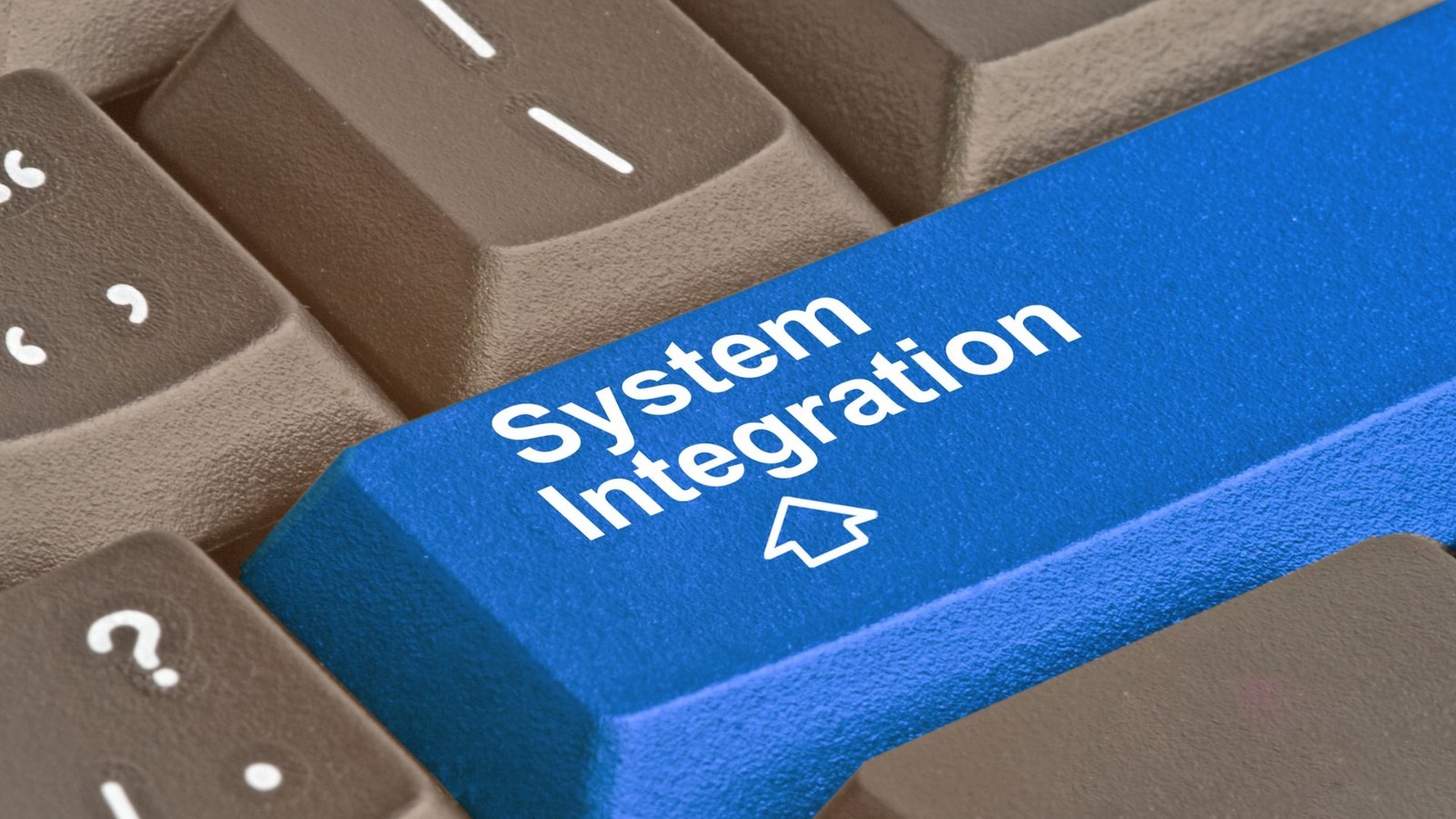
Evaluating Integration Capabilities
Your CRM doesn’t exist in a vacuum. It needs to play nice with your existing tools and systems. Zoho CRM is known for its seamless integration with various platforms, making it a versatile choice for small businesses.
Look for small business CRM solutions that offer seamless integration with your current tech stack. This could include your email platform, marketing tools, accounting software, or any industry-specific applications you use.
The goal here is to create a unified ecosystem where data flows freely between systems. This not only improves efficiency but also enhances the accuracy of your AI-driven insights. After all, the power of AI in CRM lies in its ability to analyze and act on data from multiple sources.
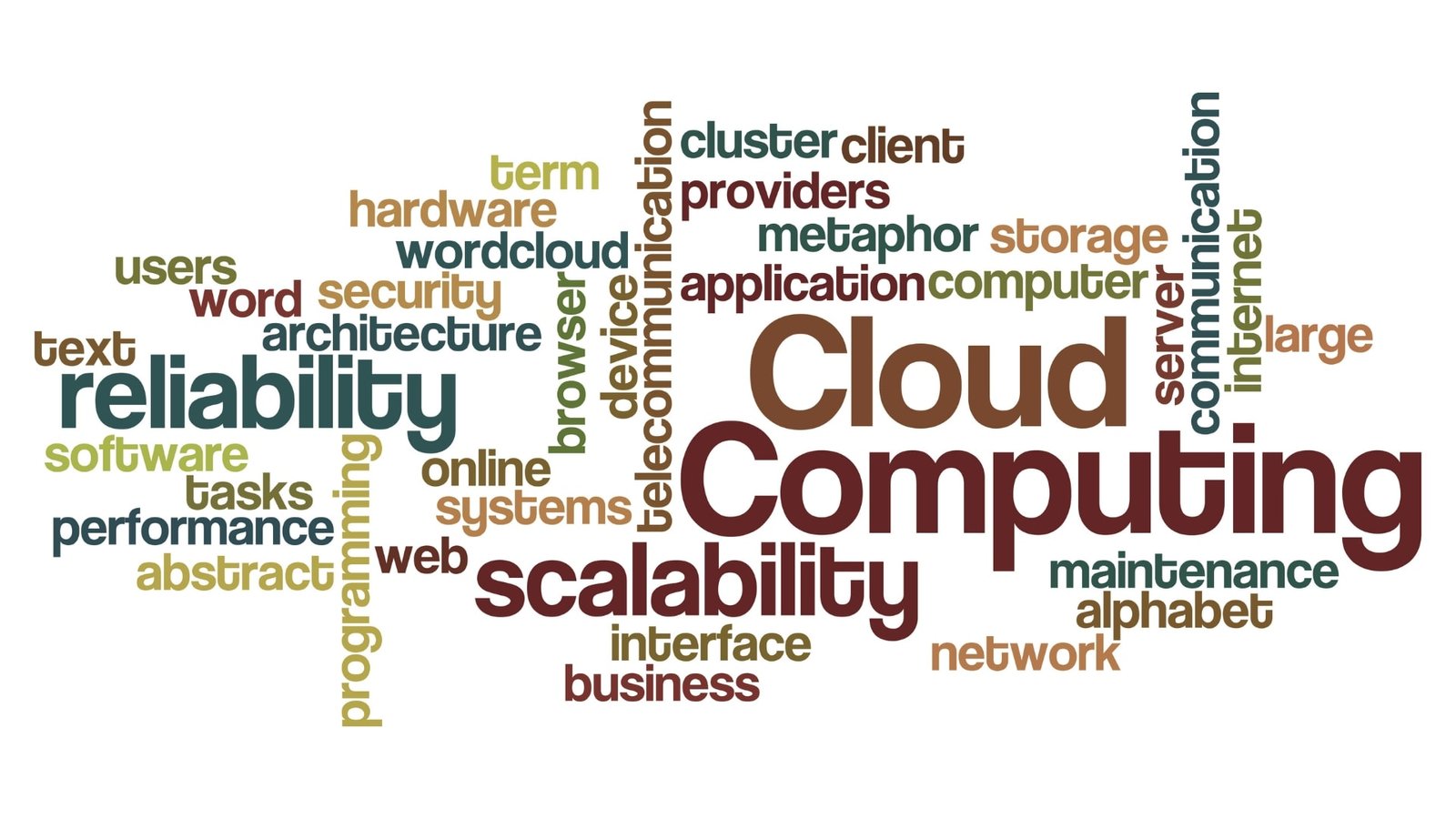
Considering Scalability and Future Growth
As a small business, you’re likely (and hopefully) planning for growth. Your CRM should be able to scale with you. Look for intelligent CRM platforms that offer tiered pricing models or modular systems that allow you to add features as you need them.
Consider how the CRM handles increasing data volumes and user numbers. Can it maintain its performance as your customer base grows? Does it offer advanced features like AI-powered business intelligence that you might need down the line?
Alex M., Small Business Owner opined “I was worried AI would make our customer interactions feel robotic, but it’s had the opposite effect. We’re more human and responsive than ever.”

Importance of User Adoption and Ease of Use
Even the most powerful AI-powered CRM is useless if your team doesn’t use it. User adoption is critical, and it often comes down to ease of use. Look for systems with intuitive interfaces and customizable dashboards. AI-powered CRM dashboards can be particularly helpful, providing clear visualizations of key metrics and actionable insights.
Consider the learning curve associated with each system. Some CRMs offer AI sales coaching features that can help your team get up to speed quickly. Others might require more extensive training. Factor this into your decision-making process.

Analyzing Pricing Models and ROI Potential
Finally, let’s talk money. AI-powered CRMs can be a significant investment, especially for small businesses. But don’t just look at the price tag – consider the potential return on investment.
Evaluate how each system could impact your bottom line. Will it help you close more deals through AI sales pipeline management? Can it reduce customer churn through better AI customer retention strategies? Will it free up your team’s time through automation of routine tasks?
Effective management of sales pipelines can maximize ROI by allowing sales teams to visualize the customer journey, track leads effectively, and enhance overall sales process management. This streamlined operation ultimately drives revenue.
Look for CRMs that offer clear metrics and reporting features. The ability to track and measure the impact of your CRM is crucial for justifying the investment and continually optimizing your use of the system.
David L., An Operations Manager at a consulting firm told us that “The implementation process was smoother than we expected. The key was taking it step-by-step and ensuring our team was fully on board.”
Remember, the cheapest option isn’t always the most cost-effective in the long run. A more expensive system with powerful AI features might pay for itself many times over if it significantly boosts your productivity and sales.
Implementing AI-Powered CRMs: Best Practices for Success
Choosing the right AI-powered CRM is a crucial decision that can significantly impact your business’s growth and success. Take your time, do your research, and don’t be afraid to ask for demos or trials before making a commitment. The perfect CRM is out there – it’s just a matter of finding the one that fits your business like a glove.

So, you’ve chosen your AI-powered CRM. Now comes the crucial part: implementation. This isn’t just about flipping a switch and watching the magic happen. It’s a process that requires careful planning, execution, and ongoing management. Let’s dive into the best practices that will set you up for success.
Steps for Smooth Integration and Customer Data Migration
First things first: you need to get your data into the new system. This isn’t just a copy-paste job. It’s about ensuring that your customer data, sales history, and other critical information are accurately transferred and properly formatted for your new AI CRM software.
Start by auditing your existing data. Clean it up, remove duplicates, and ensure it’s structured in a way that aligns with your new system. Many intelligent CRM platforms offer data mapping tools to help with this process.
Next, plan your integration strategy. Will you migrate all data at once, or take a phased approach? Consider starting with a small subset of data to test the waters. This allows you to identify and address any issues before going all-in.
Don’t forget about integrating with your existing tools. Whether it’s your email platform, marketing automation software, or accounting system, smooth integration is key to maximizing the benefits of your AI-powered CRM. Many small business CRM solutions offer pre-built integrations or APIs to facilitate this process.

Training Your Team to Leverage AI Features Effectively
Your new CRM is only as good as your team’s ability to use it. Training is crucial, especially when it comes to leveraging AI features effectively. This is particularly important for sales teams, as they need to understand how to use these tools to enhance their sales processes and collaboration.
Start with the basics. Ensure everyone understands how to navigate the system, input data, and run basic reports. Then, move on to the AI-specific features. Show them how to use AI-driven sales forecasting, how to interpret predictive lead scoring, and how to leverage AI customer segmentation for targeted marketing efforts.
Consider appointing CRM champions within your team. These individuals can receive advanced training and serve as go-to resources for their colleagues. Many CRM providers offer online training resources, webinars, and even AI sales coaching features to help with this process.
Remember, training isn’t a one-and-done deal. As your CRM evolves and adds new AI features, ongoing training will be necessary to ensure your team is making the most of these tools.

Setting Realistic Expectations, Sales Forecasting, and Measuring Success
AI-powered CRMs can dramatically improve your business processes, but they’re not magic wands. Set realistic expectations from the start. Understand that it may take time for the AI to learn your business patterns and start providing truly valuable insights.
“Our AI-powered CRM has become the backbone of our business. It’s not just a tool; it’s like having an extra team member.” – Tom B., Founder of a SaaS company
Establish clear, measurable goals for your CRM implementation. These might include improving lead conversion rates, reducing customer churn, or increasing sales team productivity. Use the CRM’s AI-powered CRM dashboards and reporting features to track these metrics over time.
Don’t just focus on quantitative metrics. Qualitative feedback from your team and customers is equally important. Are your sales reps finding the AI sales assistant helpful? Are customers noticing improvements in their experience thanks to AI-enhanced customer support?

Common Pitfalls to Avoid During Implementation
Implementing an AI-powered CRM isn’t without its challenges. Here are some common pitfalls to watch out for:
-
Overcomplicating things: Start with the essential features and gradually introduce more advanced AI tools as your team becomes comfortable with the system.
-
Neglecting data quality: Poor data in means poor insights out. Prioritize data cleansing and ongoing data management.
-
Ignoring user feedback: Your team is on the front lines. If they’re struggling with certain features or finding others particularly useful, listen and adjust accordingly.
-
Failing to customize: Many small business CRM solutions offer customization options. Take advantage of these to tailor the system to your specific needs and processes.
-
Underestimating the learning curve: Be patient. It takes time for both your team and the AI to adapt and start delivering optimal results.
-
Neglecting ongoing optimization: CRM implementation isn’t a set-it-and-forget-it process. Regularly review your usage, analyze the AI-driven customer insights, and refine your processes accordingly.
Implementing an AI-powered CRM is a journey, not a destination. It requires careful planning, ongoing management, and a commitment to continuous improvement. But with the right approach, it can be a game-changer for your small business, driving growth, improving customer relationships, and giving you a competitive edge in today’s digital marketplace.
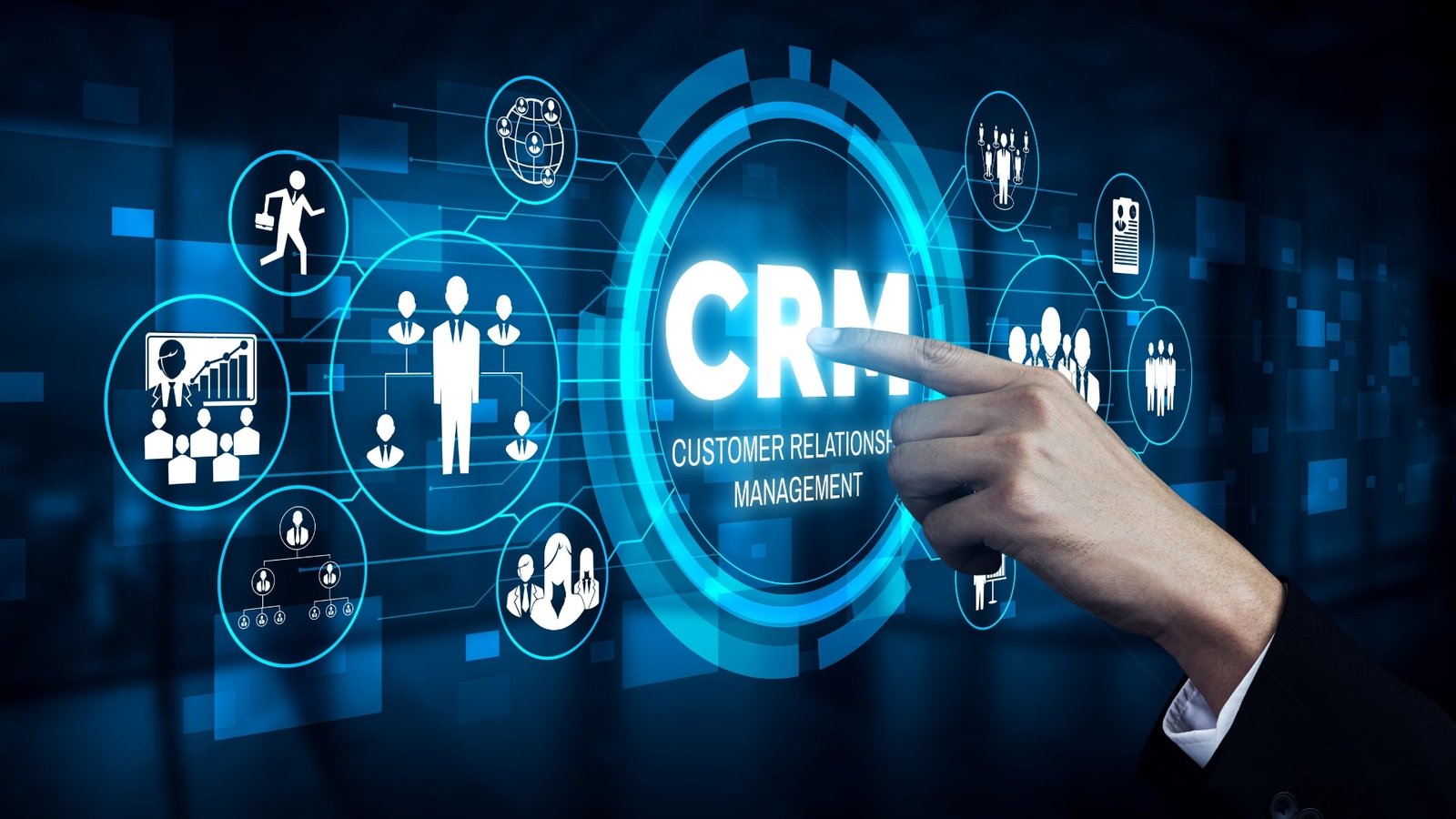
The Future of AI in CRM: What Small Businesses Can Expect
The world of AI-powered CRMs is evolving at breakneck speed, and small businesses need to stay ahead of the curve. Let’s peer into the crystal ball and explore what’s on the horizon for AI in customer relationship management.
Emerging Trends in AI-Powered CRM Technology
First up, we’re seeing a shift towards hyper-personalization. AI customer data analysis is becoming increasingly sophisticated, allowing for micro-segmentation of customers. This means you’ll be able to tailor your interactions with pinpoint accuracy, delivering messages and offers that resonate on an individual level.
Voice recognition CRM is another area that’s gaining traction. As voice assistants become more prevalent, we’re likely to see CRMs that can analyze voice interactions for sentiment, intent, and even sales opportunities. Imagine an AI that can coach your sales team in real-time during calls, suggesting talking points or identifying when a customer is ready to close.
Predictive analytics in CRM is also getting a major upgrade. We’re moving beyond simple sales forecasting to complex scenario modeling. These smart CRM systems will be able to simulate different business strategies and predict their outcomes, helping you make more informed decisions.
“The predictive analytics in our AI CRM have transformed how we approach customer retention. We’re solving problems before customers even know they have them!” – Emma S., Customer Success Manager

Potential Impacts on Customer Relationships and Business Growth
The implications of these advancements are profound. For starters, AI-enhanced customer support is set to redefine the customer experience. Chatbots for small businesses will become indistinguishable from human agents, capable of handling complex queries and even picking up on emotional cues.
AI-driven upselling and cross-selling will become more nuanced and effective. By analyzing customer behavior patterns and purchase history, these systems will be able to suggest products or services that customers are likely to need before they even realize it themselves.
Customer retention strategies will also get a boost. AI will be able to predict customer churn with uncanny accuracy, allowing you to intervene before a customer even thinks about leaving. This proactive approach could dramatically improve customer lifetime value.
From a business growth perspective, AI-powered business intelligence will provide unprecedented insights into market trends and opportunities. You’ll be able to spot emerging markets, identify new customer segments, and optimize your product offerings with greater precision than ever before.

Preparing Your Business for the Next Wave of AI Innovations in CRM
So, how can small businesses prepare for this AI-driven future? Here are a few key steps:
-
Prioritize data quality: The effectiveness of AI depends on the quality of data it’s fed. Invest in robust data management practices now to ensure you’re ready for future AI innovations.
-
Foster a culture of continuous learning: As AI capabilities evolve, your team will need to adapt. Encourage ongoing training and experimentation with new AI features as they become available.
-
Stay flexible: Choose CRM solutions that offer regular updates and have a track record of incorporating new AI technologies. This will help you stay ahead of the curve without constantly switching systems.
-
Think beyond sales: While many AI CRM features focus on sales, don’t neglect other areas like marketing and customer service. Look for platforms that offer comprehensive AI tools across all customer touchpoints.
-
Ethical considerations: As AI becomes more prevalent, issues of data privacy and ethical AI use will come to the forefront. Start thinking about these issues now and choose vendors who prioritize ethical AI practices.
The future of AI in CRM is bright, and it’s not just for big corporations anymore. Small businesses that embrace these technologies stand to gain a significant competitive advantage. By leveraging AI-powered CRM tools, you can deliver personalized experiences at scale, make data-driven decisions with confidence, and build stronger, more profitable customer relationships.
New Innovations in the Sales Process: AI-Driven Revolution
The sales landscape is undergoing a seismic shift, thanks to AI-powered innovations. These aren’t just incremental improvements – they’re game-changers that are redefining how small businesses approach sales.
AI Sales Assistants: Your Virtual Sales Coach

Imagine having a seasoned sales expert guiding every interaction. That’s what AI sales assistants are bringing to the table. These intelligent tools analyze countless sales conversations, identifying patterns that lead to success. They’re not just passive observers – they actively coach your team in real-time, suggesting talking points, flagging potential objections, and even recommending the best times to follow up.
For instance, Gong.io‘s AI can listen to sales calls and provide insights on everything from talk-to-listen ratios to the use of specific phrases that resonate with buyers. It’s like having a sales coach whispering in your ear during every pitch.
Predictive Lead Scoring: Focus on What Matters

Gone are the days of gut feelings about which leads to pursue. AI-driven predictive lead scoring is revolutionizing how we prioritize prospects. By analyzing vast amounts of data – from company size and industry to online behavior and engagement history – these systems can predict which leads are most likely to convert.
Tools like Infer take this a step further, integrating with your existing CRM to provide real-time lead scores. This allows your sales team to focus their energy where it’s most likely to pay off, dramatically increasing efficiency and conversion rates.
AI-Powered Sales Forecasting: Crystal Ball for Your Pipeline

Accurate sales forecasting has always been more art than science – until now. AI-powered sales forecasting tools are bringing unprecedented accuracy to this crucial process. By analyzing historical data, current pipeline, and even external factors like market trends, these systems can predict future sales with remarkable precision.
Clari, for example, uses machine learning to analyze your sales data and provide forecasts that are often more accurate than even your most experienced sales managers. This level of insight allows for better resource allocation and more strategic decision-making.
Automated Customer Interactions: Always-On Sales
AI is enabling businesses to be ‘always on’ in their sales efforts. Chatbots and virtual assistants can engage with potential customers 24/7, answering questions, qualifying leads, and even setting up meetings with human sales reps.
But these aren’t your clunky chatbots of yesteryear. Modern AI-powered conversational agents like Drift can understand context, remember previous interactions, and provide personalized responses that feel surprisingly human.

AI-Driven Upselling and Cross-Selling: Maximizing Customer Value
AI isn’t just helping acquire new customers – it’s also revolutionizing how we maximize the value of existing ones. By analyzing purchase history, browsing behavior, and even social media activity, AI can identify prime opportunities for upselling and cross-selling.
Salesforce Einstein, for instance, can predict which products a customer is most likely to buy next and when they’re most likely to make a purchase. This allows for highly targeted, timely offers that feel helpful rather than pushy.
These innovations are just the tip of the iceberg. As AI continues to evolve, we can expect even more transformative changes in the sales process. The key for small businesses is to stay informed and be willing to adapt. Those who embrace these AI-driven sales tools won’t just keep up with the competition – they’ll leave them in the dust.
Remember, though, that while AI can supercharge your sales process, it’s not about replacing human interaction. The most successful businesses will be those that use AI to augment and empower their sales teams, combining the efficiency and insights of AI with the empathy and relationship-building skills that only humans can provide.

The AI revolution in CRM is just getting started. Are you ready to ride the wave?
Conclusion: The right AI-powered CRM can be a game-changer for your small business, streamlining operations and supercharging your customer relationships. As we’ve seen, there’s no one-size-fits-all solution – the best tool for you depends on your unique needs, budget, and goals.
But one thing’s for sure: embracing AI in your CRM strategy isn’t just about keeping up with the Joneses; it’s about setting your business up for long-term success in an increasingly competitive landscape.
Jennifer W., Entrepreneur and Business Coach summed it up well. She said “As a small business, we never thought we’d have access to this level of AI technology. It’s leveled the playing field for us.”
So, what are you waiting for? Take the plunge, explore these top-notch AI-powered CRM tools, and watch your small business soar to new heights. The future of customer relationship management is here – and it’s powered by AI.
Hope you enjoyed this article. Reach out to me for any queries or for consulting advise.




